In recent years, the kitchen appliance market has witnessed a significant shift with the rise of private label contact grills. These grills, once overshadowed by well-known brand names, have now gained considerable traction among consumers. This article delves into the factors driving this trend, the behaviors that shape consumer choices, and the competitive dynamics shaping the future of private label contact grills.
Introduction to Contact Grill Market in the Western World
In the Western world, the contact grill market has seen a significant surge in popularity over the years. These compact cooking appliances have become a staple in many households, offering a convenient and healthy alternative to traditional grilling methods. The market for contact grills in Europe and North America is particularly robust, with a diverse range of products catering to various culinary preferences and budgets.
The sleek design and ease of use of contact grills have made them a favorite among busy individuals and families. They are perfect for those who want to enjoy the flavor of grilled food without the need for an outdoor grill or the hassle of flipping burgers and steaks. As such, the demand for contact grills has been steadily growing, prompting manufacturers to innovate and expand their product lines.
One of the key factors driving the growth of the contact grill market is the increasing health consciousness among consumers. Contact grills are often praised for their ability to cook food with minimal oil, reducing the risk of heart disease and other health issues associated with excessive fat intake. This health angle has certainly played a role in the market’s expansion, as more people seek out cooking methods that align with their wellness goals.
The market for contact grills in the Western world is also being influenced by changing lifestyles. With more people living in urban areas and leading fast-paced lives, the need for quick and easy meal preparation is at an all-time high. Contact grills fit this bill perfectly, allowing for delicious meals to be cooked in a matter of minutes, without the need for a lot of hands-on time.
In terms of product variety, the contact grill market in the Western world is quite diverse. There are models designed for countertop use, as well as those that can be mounted on the back of a stove. Some are equipped with non-stick surfaces, while others feature adjustable temperature controls and additional cooking functions like searing or toasting. This wide array of options ensures that there is a contact grill to suit every kitchen and every type of cooking.
When it comes to market leaders, several brands have established themselves as go-to choices for consumers. These brands often invest heavily in research and development to create innovative features that set their products apart. From advanced heating elements to smart technology that allows for precise temperature control, these brands are continuously pushing the boundaries of what contact grills can offer.
The rise of private label brands has also been a notable trend in the contact grill market. These brands, which are often associated with retail stores, have managed to capture a significant share of the market by offering competitive pricing and reliable quality. Private label contact grills are particularly appealing to budget-conscious consumers who are looking for a good value without compromising on performance.
Distribution channels for contact grills in the Western world are also varied. They can be found in major department stores, home goods retailers, specialty kitchen appliance shops, and even online. The ease of access to these products has made it convenient for consumers to purchase and enjoy the benefits of contact grilling.
As the market for contact grills continues to expand, it’s clear that there are several key factors contributing to its growth. The health benefits, convenience, and variety of products are all playing a role in making contact grills a popular choice for many Western consumers. With ongoing innovation and the entry of new players into the market, it’s likely that the contact grill segment will continue to thrive and evolve.
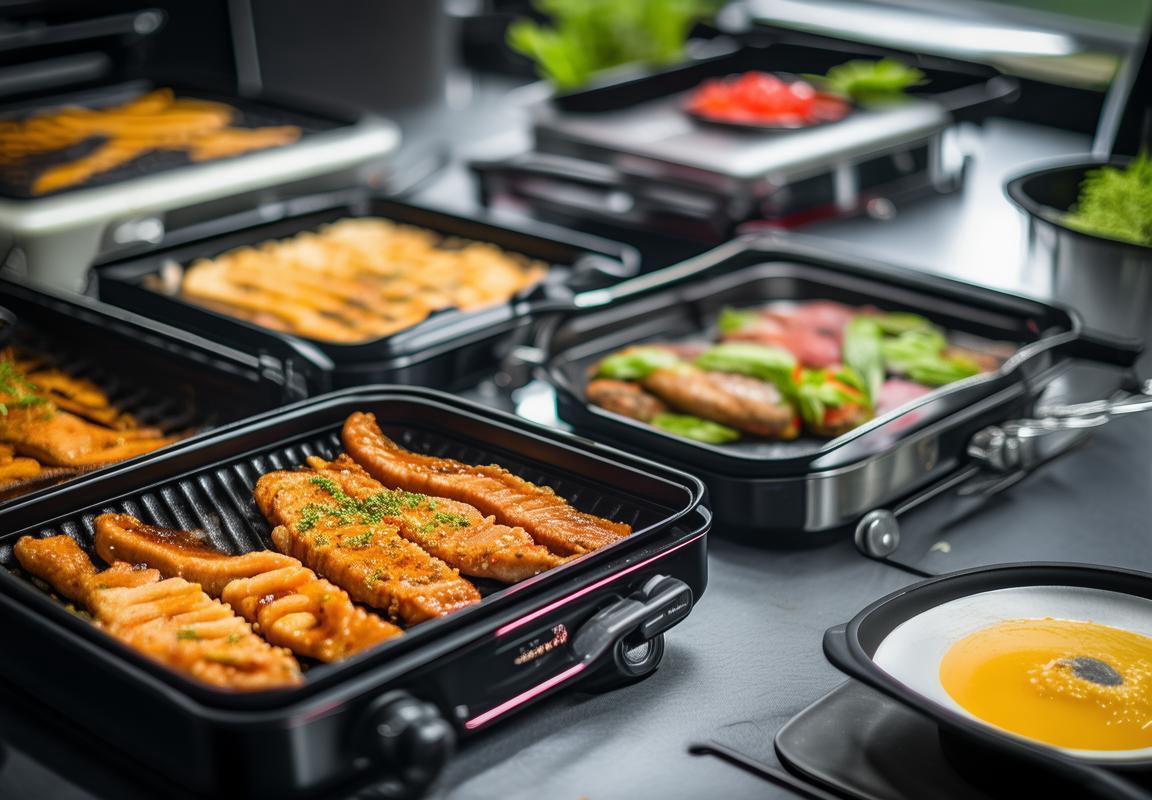
The Rise of Private Label Contact Grills
The private label segment within the contact grill market has seen a remarkable surge in popularity, reflecting a shift in consumer preferences and the evolving retail landscape. This trend has been fueled by several key factors that are reshaping the industry.
Private label brands have often been perceived as budget-friendly alternatives to well-known, premium brands. In the contact grill market, this perception is translating into a growing customer base. As economic concerns persist, consumers are increasingly seeking value over brand names, leading to a surge in private label contact grill sales.
Retailers have played a pivotal role in this growth by offering private label products that cater to a wide range of budgets and cooking needs. These brands often provide a cost-effective option without compromising on quality, which is a crucial factor for many shoppers. The ability to offer a variety of features at a more accessible price point has made private label contact grills a favorite among budget-conscious consumers.
The convenience and versatility of contact grills have also contributed to their popularity, and private label brands have capitalized on this by introducing innovative features that appeal to a broad audience. From compact models for small kitchens to large, multi-functional units for outdoor cooking, private label contact grills have become a staple in many homes.
The rise of private label contact grills can also be attributed to the emphasis on health and wellness. As consumers become more health-conscious, there is a growing demand for cooking methods that offer healthier alternatives to traditional grilling. Private label brands have responded by offering contact grills that are easy to clean and use less oil, thus promoting healthier cooking habits.
Moreover, the retail sector has witnessed a shift towards offering more personalized and niche products. Private label brands have been able to adapt quickly to this trend by introducing a variety of models that cater to specific consumer needs. Whether it’s a sleek design for modern kitchens or a rugged build for outdoor enthusiasts, private label contact grills are meeting the diverse demands of the market.
The rise of e-commerce has also played a significant role in the growth of private label contact grills. Online retailers have been able to offer a wider selection of private label products, reaching consumers who may not have access to a physical store. The convenience of online shopping has made it easier for consumers to explore different brands and models, often leading to increased sales for private label contact grills.
In terms of marketing, private label brands have been successful in leveraging social media and influencer partnerships to increase their visibility. By showcasing the benefits of their contact grills, such as ease of use, quick cooking times, and even the ability to cook a variety of foods, these brands have been able to connect with consumers on a more personal level.
Another contributing factor to the rise of private label contact grills is the emphasis on sustainability. As consumers become more environmentally aware, they are looking for products that are produced in an eco-friendly manner. Private label brands that can demonstrate their commitment to sustainability through responsible sourcing and manufacturing processes are gaining a competitive edge.
The after-sales service and warranty offerings from private label brands have also been instrumental in their success. By providing comprehensive customer support and reliable warranties, these brands are building trust with consumers, which is essential in a market where the initial cost is often a significant purchasing factor.
In conclusion, the rise of private label contact grills is a multifaceted phenomenon driven by economic factors, consumer preferences, technological advancements, and the evolving retail landscape. As the market continues to grow, private label brands are likely to play an increasingly important role in shaping the future of the contact grill industry.
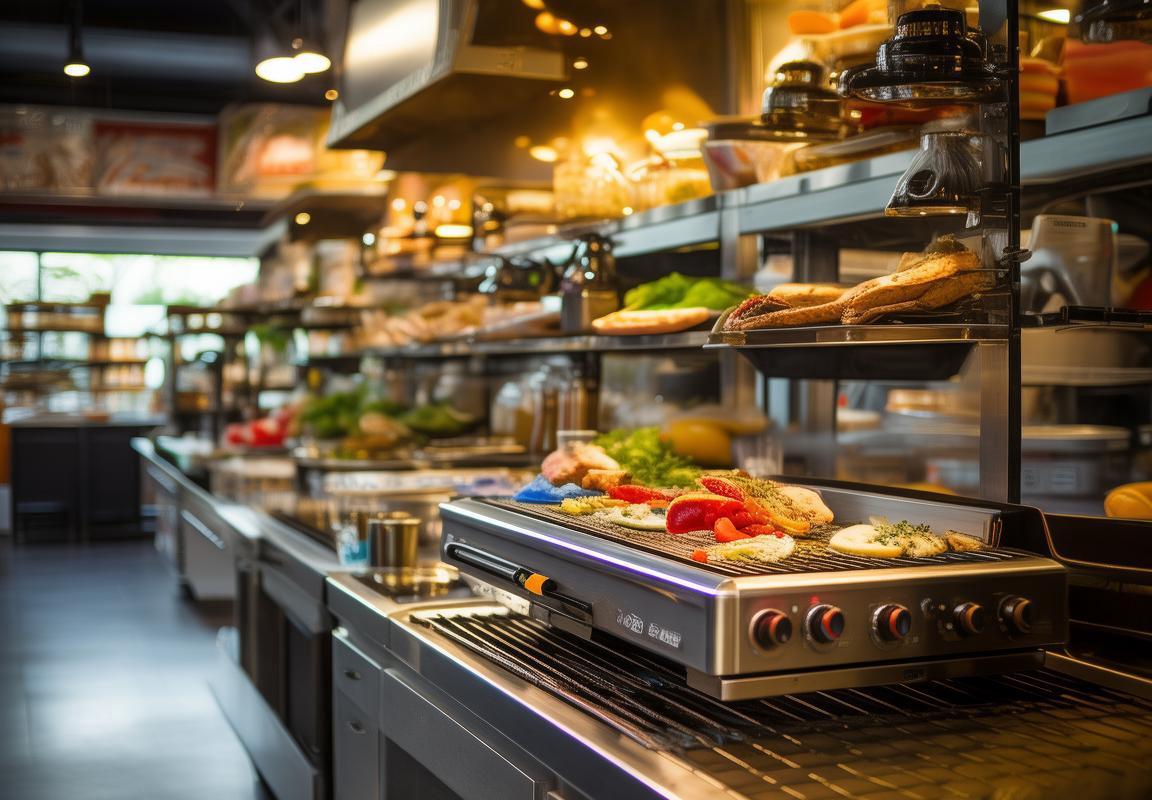
Understanding the Consumer Appeal of Private Label Contact Grills
Private label contact grills have seen a significant surge in popularity, and it’s not hard to see why. These cooktop appliances offer a unique blend of convenience, affordability, and quality that resonates with a wide range of consumers. Let’s delve into the factors that make private label contact grills so appealing.
The affordability of private label contact grills is a major draw for consumers. With a variety of price points available, these grills cater to budgets of all sizes. This affordability makes them accessible to both new and experienced cooks, allowing them to enjoy the benefits of contact grilling without a significant financial investment. The competitive pricing often means that consumers can find high-quality features at a fraction of the cost of name-brand counterparts.
Another key appeal lies in the simplicity of use. Private label contact grills are designed with ease in mind, featuring straightforward controls and often intuitive cooking functions. This user-friendly aspect is particularly attractive to those who may not be as confident in the kitchen or who are looking for a quick and easy way to prepare meals. The simplicity of these grills can help bridge the gap between cooking enthusiasts and those who prefer more straightforward culinary experiences.
Quality, despite the lower price tag, is not compromised in private label contact grills. These appliances are often built with durable materials and incorporate features that ensure even cooking and consistent performance. The attention to detail in design and construction means that consumers can expect a reliable product that will last. This quality assurance is a significant factor in the consumer’s decision to opt for a private label option over a more expensive brand.
Customization is another aspect that makes private label contact grills appealing. Many private label brands offer a range of designs and functionalities, allowing consumers to choose a grill that fits their specific needs and preferences. Whether it’s a sleek, modern look or a more traditional style, the variety available means that consumers can find a contact grill that complements their kitchen decor and cooking style.
Health-conscious consumers are also drawn to private label contact grills. These grills are known for their ability to cook food with minimal oil, which can be a healthier alternative to traditional frying methods. The even heat distribution of contact grills helps to seal in flavors while reducing the need for excess fats, making them a popular choice for those looking to maintain a balanced diet.
The versatility of private label contact grills is undeniable. They can be used to cook a variety of foods, from meats and vegetables to cheeses and sandwiches. The even cooking surface ensures that each item is perfectly grilled, with a delicious char and a satisfying texture. This versatility means that a single private label contact grill can be a staple in a busy household or a cherished tool in a seasoned chef’s kitchen.
The convenience factor cannot be overstated. Contact grills are compact and easy to store, making them a great addition to any kitchen, regardless of space constraints. They are also portable, allowing for outdoor cooking and picnics. The convenience of a quick clean-up after use is another bonus, as many private label contact grills can be wiped down or even placed in the dishwasher.
Lastly, the trust in private label brands has grown. As consumers become more informed about where their products come from and the quality of manufacturing, they are increasingly turning to private label options. The reputation of private label brands for offering reliable products at a fair price has bolstered consumer confidence, making them a preferred choice for many.
In summary, the consumer appeal of private label contact grills is multifaceted. From affordability and ease of use to quality, customization, health benefits, versatility, convenience, and trust, these grills offer a compelling package that meets the diverse needs of today’s consumers. As the market continues to evolve, it’s clear that private label contact grills will remain a popular choice for those seeking a high-quality cooking experience without the high price tag.

Market Analysis: Key Players and Distribution Channels
In the ever-evolving landscape of kitchen appliances, private label contact grills have emerged as a significant force. These brands, often associated with department stores, specialty retailers, and online marketplaces, offer consumers an array of benefits that have propelled their popularity. Let’s delve into the market dynamics that have contributed to the rise of private label contact grills.
Private label contact grills are often priced lower than their branded counterparts, making them an attractive option for budget-conscious consumers. This affordability is a major draw, as it allows shoppers to enjoy the convenience and health benefits of grilling without the hefty price tag. As the economy fluctuates and consumers seek cost-effective solutions, private labels have stepped in to fill the gap.
Moreover, private label brands have managed to offer competitive features that rival those of high-end grills. With innovations in non-stick coatings, adjustable temperature controls, and sleek designs, these grills have become a go-to choice for those who want quality without the premium price. The ability to provide value without sacrificing performance has solidified private labels’ position in the market.
The market for private label contact grills is not without its key players. Large retailers such as Walmart, Target, and Costco have their own private label brands that have gained a significant following. These companies leverage their vast distribution networks to ensure that their private label products are readily available to consumers across various channels. For instance, the Kirkland Signature brand from Costco has become synonymous with high-quality, affordable products, including contact grills.
In the realm of online sales, Amazon has been a key player in the private label market. The e-commerce giant’s private label brand, AmazonBasics, offers a range of contact grills that cater to different budgets and cooking preferences. The direct-to-consumer model allows AmazonBasics to maintain lower costs and pass those savings onto customers, further solidifying its position in the market.
When it comes to distribution channels, private label contact grills have expanded beyond traditional retail stores. Online sales have seen a substantial increase, thanks to the convenience and accessibility offered by e-commerce platforms. This shift has been particularly pronounced during the COVID-19 pandemic, as more consumers turned to online shopping for their household needs.
Specialty retailers have also become a significant channel for private label contact grills. Stores like Bed Bath & Beyond and Williams-Sonoma offer a curated selection of private label kitchen appliances, including contact grills, that cater to consumers who appreciate high-quality, value-driven products. These retailers often provide additional benefits such as in-store demonstrations and customer service, which can enhance the overall shopping experience.
Department stores like Macy’s and JCPenney have also embraced the private label market, offering their own brands of contact grills alongside national brands. This dual strategy allows them to cater to a broad customer base, from those looking for the latest trends in kitchen appliances to those seeking the most affordable options.
As the market for private label contact grills continues to grow, so too does the competition. National brands are increasingly looking to private labels as a threat and are taking steps to compete. Some have even introduced their own private label lines to offer consumers more affordable options without compromising on quality.
The rise of private label contact grills can also be attributed to the changing consumer preferences. With a growing emphasis on health and wellness, more consumers are gravitating towards cooking methods that reduce the need for added fats and oils, such as grilling. Private label brands have recognized this trend and are responding by offering grills that meet the demands of health-conscious consumers.
In the distribution sphere, partnerships with home improvement and hardware stores have also emerged as a key channel for private label contact grills. Companies like Home Depot and Lowe’s have included these grills in their inventory, capitalizing on the fact that many homeowners are looking to upgrade their outdoor kitchen appliances.
The rise of private label contact grills is a testament to the evolving consumer landscape and the adaptability of the retail industry. As consumers continue to seek value, quality, and convenience, private label brands are stepping up to meet these demands. With a diverse range of distribution channels and a focus on innovation, private label contact grills are poised to remain a significant force in the kitchen appliance market.
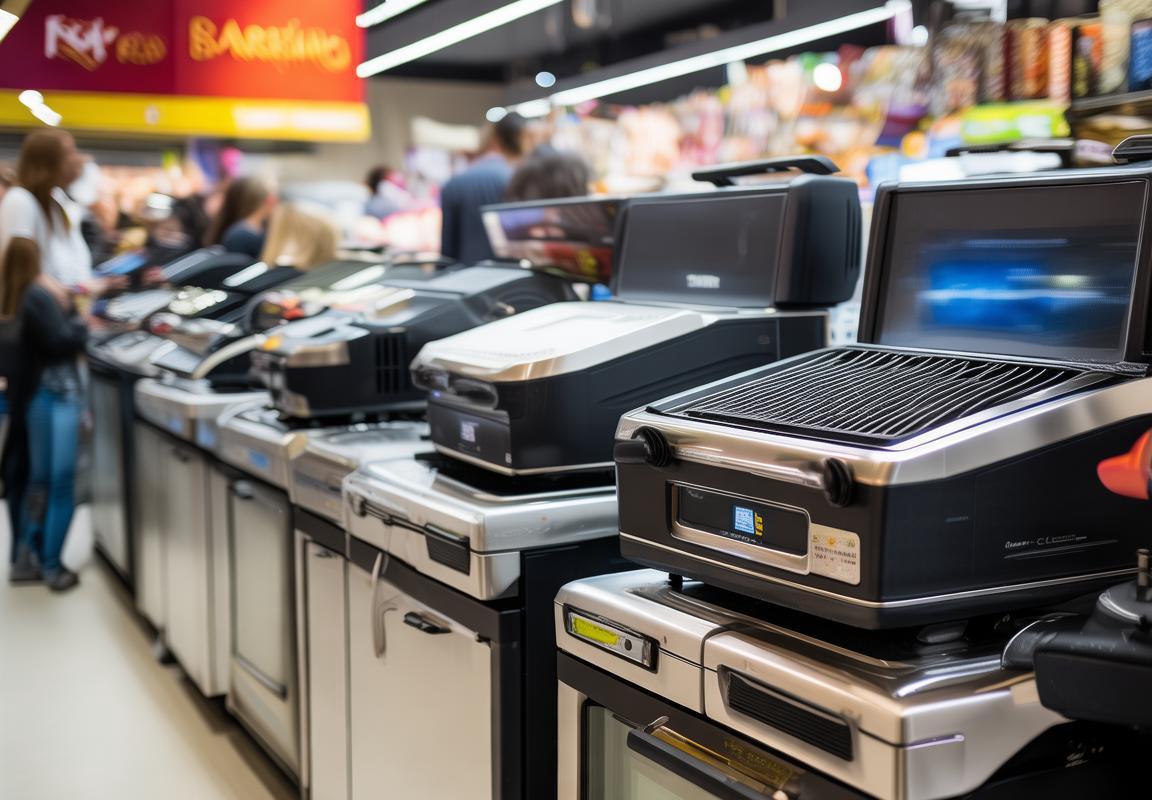
Consumer Behavior and Market Segmentation
In recent years, the consumer behavior in the kitchen appliance market has undergone a significant shift, particularly with the rise of private label contact grills. Understanding the nuances of this behavior is crucial for players in the industry to tailor their products and marketing strategies accordingly. Here’s a closer look at how consumers are engaging with private label contact grills and the market segments they represent.
Consumers are increasingly seeking value over brand names, and private label contact grills have capitalized on this trend. Many shoppers view these products as a more affordable alternative to name-brand counterparts, yet they often deliver comparable performance. This affordability factor is particularly appealing to budget-conscious consumers who are looking for high-quality appliances without the premium price tag.
The growing interest in health and wellness has also influenced consumer behavior in the contact grill market. With a focus on grilling rather than frying, these appliances offer a healthier cooking option that’s low in fat and high in flavor. Health-conscious consumers are drawn to the idea of preparing delicious meals that are also beneficial for their well-being, making private label contact grills a popular choice for those adhering to diets like Mediterranean or paleo.
Technology enthusiasts are another key segment within the consumer base. As contact grills evolve to include features like temperature control, non-stick surfaces, and easy-to-clean designs, tech-savvy consumers are drawn to these innovations. They appreciate the convenience and efficiency that these features bring to the cooking process, enhancing their overall experience with the appliance.
Younger demographics, particularly millennials and Gen Z, are also contributing to the popularity of private label contact grills. These generations are known for their preference for unique, customizable experiences, and the versatility of contact grills aligns with this mindset. They enjoy experimenting with different recipes and cooking techniques, and the ease of use of contact grills appeals to their busy lifestyles.
The rise of online shopping has had a profound impact on consumer behavior. Many consumers now prefer to research and purchase kitchen appliances online, taking advantage of the convenience and the wider range of options available. Private label contact grills, often sold through online marketplaces and e-commerce websites, have seen a surge in sales due to this shift in consumer behavior.
In terms of market segmentation, private label contact grills cater to a diverse range of consumers based on various factors. For instance, families with children might look for models with additional safety features, such as cool-to-the-touch handles or automatic shut-off mechanisms. Single individuals or small households may prioritize compactness and ease of storage.
Eco-conscious consumers are another segment that private label contact grills are appealing to. As sustainability becomes a more prominent concern, appliances that are energy-efficient and have a smaller carbon footprint are in higher demand. Private label brands often offer eco-friendly options that resonate with this segment.
Moreover, there’s a segment of consumers who are brand loyal but are also open to trying new products. These individuals might be satisfied with their current appliance brand but are intrigued by the features and benefits offered by private label contact grills. They appreciate the opportunity to explore new options without committing to a long-term investment.
The market segmentation for private label contact grills also extends to geographic regions. Urban areas, where space is at a premium, may see a higher demand for compact and efficient models. Conversely, suburban or rural areas might have a greater interest in larger, more robust models that can handle larger quantities of food.
In conclusion, the consumer appeal of private label contact grills is multifaceted, catering to a wide range of preferences and needs. By understanding the various market segments, manufacturers and retailers can better target their marketing efforts and product development to meet the evolving demands of consumers in the kitchen appliance market.
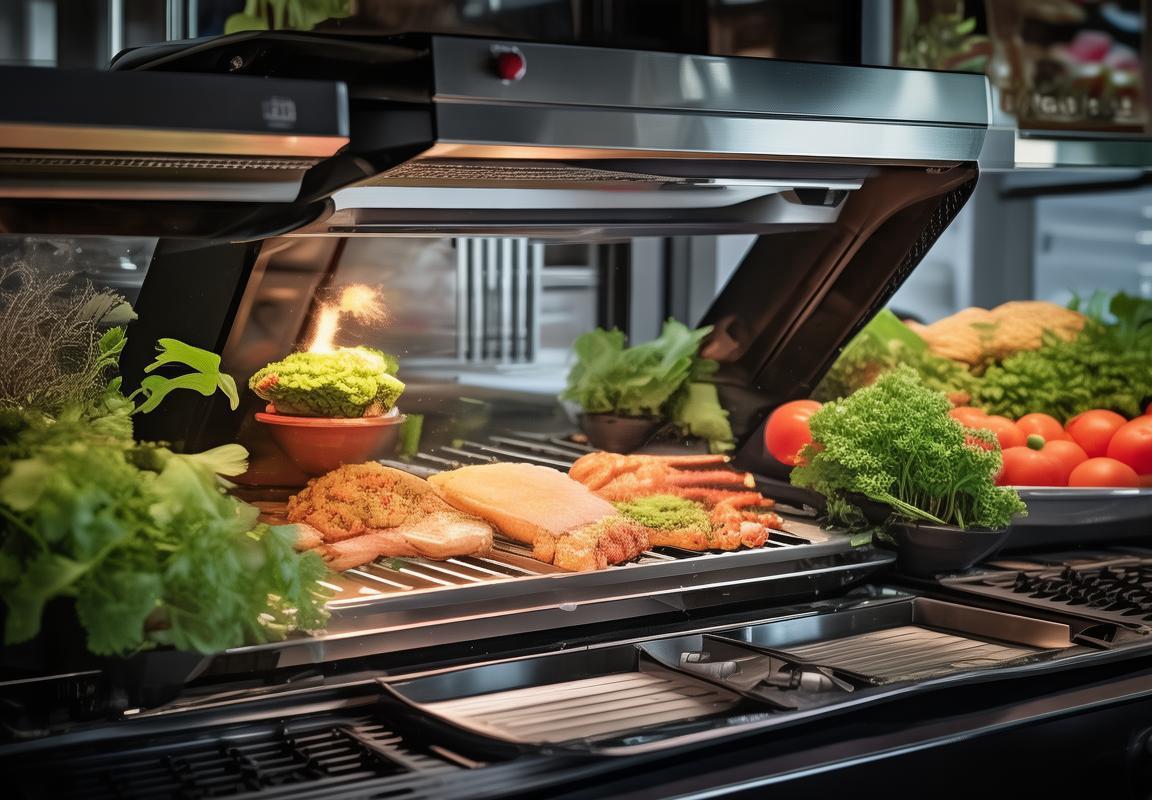
Competitive Landscape: Challenges and Opportunities
In the dynamic world of contact grill manufacturing, the competitive landscape is shaped by a variety of challenges and opportunities that brands must navigate to thrive. Here’s a closer look at what these factors entail:
Brands are continuously striving to innovate and improve upon the basic design of contact grills, offering features that set them apart. From adjustable heat settings to non-stick coatings, each innovation aims to address consumer needs and preferences.
The rise of e-commerce has opened up new channels for contact grill brands to reach customers. Online marketplaces provide a direct-to-consumer platform that can reduce overhead costs and increase accessibility. However, this shift also means brands must compete in a highly visible and competitive digital space.
Retail partnerships remain a cornerstone of distribution, with major appliance retailers and specialty kitchen stores playing a significant role. These partnerships are crucial for shelf space and brand visibility, but they also come with the challenge of meeting the diverse demands of different retailers.
In the wake of the pandemic, there has been a notable increase in the demand for health-conscious cooking methods. Contact grills, with their ability to cook with less oil, have become a popular choice among consumers looking to reduce their intake of unhealthy fats. This health trend has created a significant opportunity for brands to position their products as a healthier alternative to traditional cooking methods.
The sustainability movement has also influenced consumer purchasing decisions. Brands that can demonstrate eco-friendly practices, such as using recycled materials or minimizing packaging, are likely to attract environmentally conscious consumers. This presents an opportunity for contact grill manufacturers to differentiate themselves through sustainable initiatives.
Consumer expectations are evolving, and the demand for personalized experiences is on the rise. Brands that can offer customization options, such as different grill patterns or temperature controls, may appeal to a broader market. However, this also requires a more complex supply chain and production process.
In the realm of contact grills, safety remains a paramount concern. Recalls and safety issues can tarnish a brand’s reputation and erode consumer trust. Brands must invest in rigorous testing and quality control to ensure their products meet safety standards and regulations.
The entry of new players into the market can disrupt the competitive landscape. These newcomers often bring fresh ideas and technologies that can shake up the status quo. Established brands must stay vigilant and be prepared to adapt to these changes.
Globalization has made the contact grill market more interconnected. Brands can now tap into international markets, but this also means facing competition from brands around the world. Navigating cultural differences and regulatory requirements can be challenging, but it also opens up doors to new customer segments.
Finally, the competitive landscape is influenced by economic factors. Fluctuations in the cost of materials and labor can impact pricing strategies, and economic downturns can lead to reduced consumer spending. Brands must be agile and able to respond to these economic shifts while maintaining profitability.
In summary, the competitive landscape for contact grills is complex, with a multitude of challenges and opportunities. Brands that can innovate, adapt, and meet the evolving demands of consumers are best positioned to succeed in this dynamic market.

Technological Advancements and Future Outlook
In recent years, the kitchen appliance industry has seen a surge in technological advancements, particularly in the realm of contact grills. These innovations have not only enhanced the functionality and performance of contact grills but have also opened up new avenues for consumer experiences. Let’s delve into the latest technological breakthroughs and the future outlook for this segment.
The integration of smart technology has become a hallmark of modern contact grills. With features like digital temperature control and wireless connectivity, users can now monitor and adjust the cooking process from their smartphones or tablets. This level of precision was once a luxury found only in high-end models but is now becoming more accessible to the average consumer.
One significant development is the inclusion of non-stick coatings that are not only durable but also more environmentally friendly. These coatings are designed to reduce the need for excessive oil, making grilling healthier and less messy. The longevity of these coatings has improved, ensuring that consumers can enjoy their contact grills for longer periods without worrying about wear and tear.
The rise of modular designs has allowed for greater customization and adaptability. Users can now purchase individual grill plates that can be swapped out based on their cooking needs. This not only means that a single unit can cater to various types of food but also that consumers can upgrade their grills incrementally, keeping them relevant and efficient over time.
Energy efficiency has also been a focal point for manufacturers. With rising energy costs and a growing environmental consciousness, contact grills that consume less power are becoming more popular. Innovations such as heat recovery systems and improved insulation have led to more energy-efficient grills that can save both money and resources.
Safety features have seen a significant upgrade as well. New models come equipped with features like automatic shut-off, child locks, and safety interlocks that prevent accidental burns. These advancements not only protect users but also provide peace of mind for those with young children or pets.
Looking ahead, the future of contact grills is bright, with several trends shaping the landscape. One of the most anticipated developments is the integration of artificial intelligence (AI). AI could potentially enable contact grills to learn from user preferences and cooking habits, offering personalized cooking suggestions and optimizing the grilling process for the best results.
Sustainability is another area where we can expect to see considerable progress. As consumers become more environmentally conscious, there will likely be a push for more sustainable materials and manufacturing processes. This could include the use of recycled materials, biodegradable components, and energy-efficient production methods.
The rise of the digital kitchen is also influencing the future of contact grills. Smart grills that can be controlled remotely and can integrate with other smart home devices are poised to become more common. These devices will not only provide convenience but also enhance the overall cooking experience by offering users more control and insights into their grilling sessions.
Another trend to watch is the increased focus on health and wellness. As consumers become more health-conscious, there will likely be a demand for contact grills that can accommodate various health diets, such as gluten-free, vegan, and paleo. This could involve the development of specialized grill plates and cooking modes.
Lastly, the rise of e-commerce and direct-to-consumer (DTC) sales models is likely to impact the contact grill market. By cutting out the middleman, manufacturers can offer competitive pricing and more direct customer service. This shift could also lead to more innovative marketing strategies and faster response times to consumer feedback.
In conclusion, the technological advancements in contact grills are reshaping the industry, offering consumers a wider range of features and benefits. The future holds promise with continued innovation, sustainability, and a deeper integration with smart home technologies. As these trends evolve, the contact grill market is set to become an even more integral part of the modern kitchen experience.
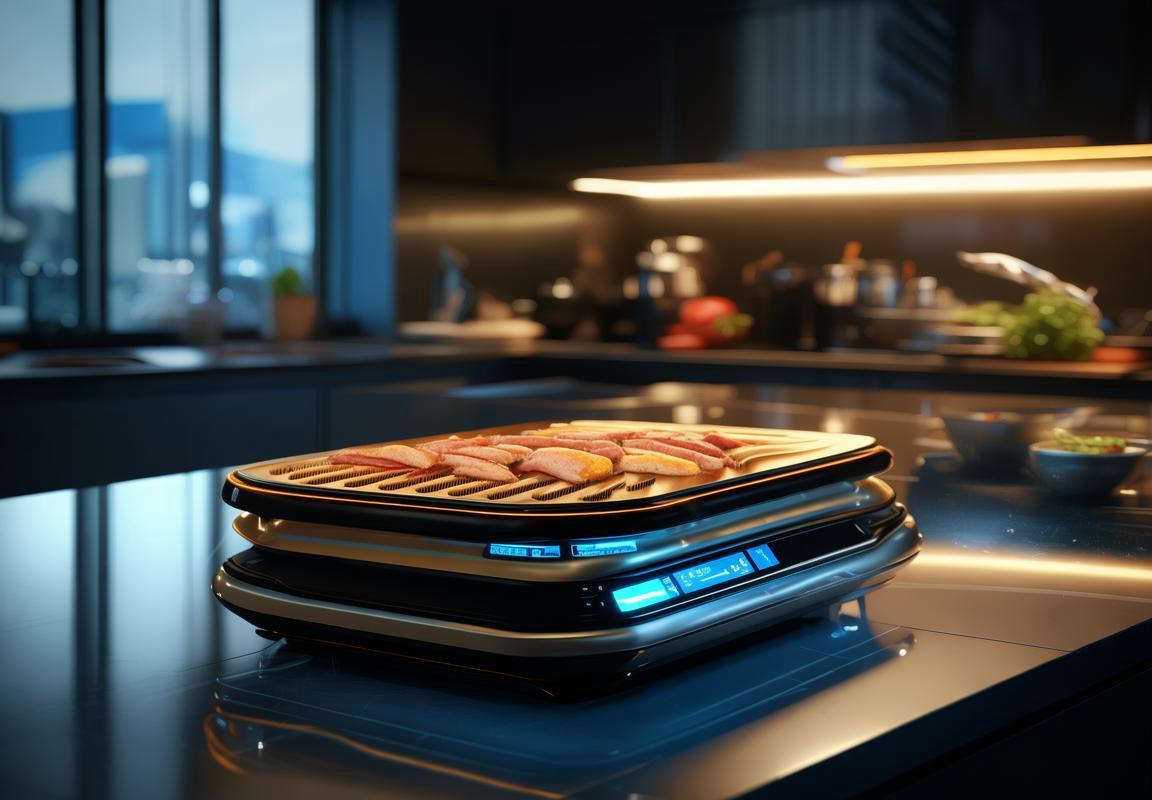
Case Studies: Successful Private Label Contact Grill Brands
In the realm of private label contact grill brands, several companies have carved out a niche for themselves by offering quality products at competitive prices. Let’s delve into the success stories of a few such brands that have managed to stand out in a crowded market.
The brand ‘SizzlePro’ has gained traction by focusing on innovation and user convenience. Their contact grills come with features like adjustable heat settings and non-stick surfaces, making them a favorite among busy home cooks. SizzlePro’s marketing strategy emphasizes the ease of use and the ability to achieve restaurant-quality results at home.
Another standout is ‘GrillEase’, which has targeted the eco-conscious consumer with their line of energy-efficient contact grills. These grills not only save on electricity bills but also reduce carbon footprints. GrillEase’s branding speaks to the environmental benefits, appealing to a demographic that values sustainability.
‘The GrillGuru’ has differentiated itself by offering a range of contact grills that cater to various dietary preferences, including vegan and gluten-free options. Their commitment to quality ingredients and transparent labeling has helped build a loyal customer base. The GrillGuru’s success lies in their ability to meet the diverse needs of health-conscious consumers.
‘CookNChill’ has capitalized on the convenience market by offering contact grills that can be used both on the countertop and in the oven. This dual-purpose feature allows for flexibility in cooking methods, appealing to those who want to save space in their kitchen. Their marketing focuses on the versatility of their products, making them a go-to for those who enjoy experimenting with different cooking techniques.
‘GrillMaster’ has made a name for itself by focusing on the professional chef at home. Their high-end contact grills are designed with commercial-grade components, ensuring durability and performance. GrillMaster’s branding speaks to the quality and precision of their products, making them a choice for serious home cooks and culinary enthusiasts.
In the case of ‘FlavorForge’, the brand has leveraged the power of social media to create a community around their contact grills. By showcasing user-generated content and sharing recipes, FlavorForge has built a loyal following. Their approachable and engaging marketing strategy has helped them connect with consumers on a personal level.
‘GrillPride’ has differentiated itself by offering a variety of contact grills that are designed with unique features, such as adjustable cooking plates and built-in temperature gauges. This focus on customization has allowed GrillPride to cater to a wide range of cooking styles and preferences. Their marketing messages highlight the personalization aspect, appealing to those who want a grill that suits their specific needs.
‘The GrillNest’ has found success by focusing on the health benefits of their contact grills. By offering models with removable cooking surfaces for easy cleaning and dishwasher-safe parts, they have addressed a common concern among consumers. The GrillNest’s branding focuses on the health and cleanliness of their products, making them a popular choice for families and health-conscious individuals.
Each of these brands has found its own path to success within the private label contact grill market. Whether it’s through innovation, convenience, sustainability, health-conscious features, or community building, these brands have managed to capture the attention and loyalty of consumers. Their stories serve as inspiration for other companies looking to carve out a niche in a competitive industry.
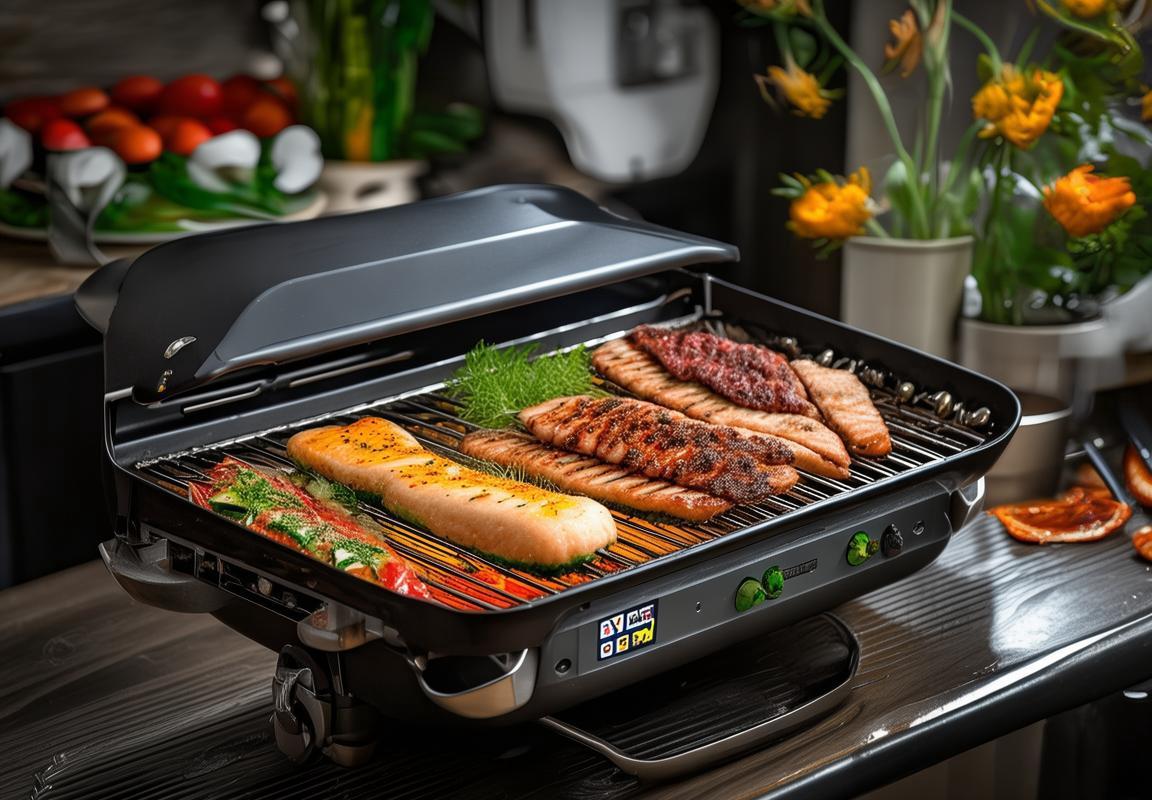
Conclusion: The Potential of Private Label Contact Grills
The rise of private label contact grills has been a fascinating trend in the kitchen appliance market. These products, often found under store brands or retailer-specific labels, have captured the attention of consumers seeking quality and value. Let’s delve into the specifics of this phenomenon, examining the reasons behind its popularity and the potential it holds for the future.
Private label contact grills have found their niche by offering a blend of affordability and functionality. They cater to a wide range of consumers, from budget-conscious shoppers to those who prefer the convenience of having a reliable appliance at a lower price point. The success of these products can be attributed to several key factors:
- Cost-Effective Pricing: Private label contact grills are typically priced lower than their branded counterparts, making them an attractive option for consumers looking to save money without compromising on quality.
- Consistent Quality: Despite the lower price tag, many private label brands have managed to maintain a high standard of quality, ensuring that customers receive a reliable product that performs well.
- Innovative Features: Some private label brands have introduced innovative features that differentiate their contact grills from more expensive models, appealing to consumers who value unique functionalities.
The distribution channels for private label contact grills have also played a significant role in their success. These channels often include:
- Mass Merchandisers: Large retailers like Walmart and Target have been key in offering private label contact grills to a broad consumer base.
- Specialty Stores: Stores that focus on kitchen appliances have also embraced private label options, providing customers with a variety of choices within a niche market.
- Online Retailers: The rise of e-commerce has expanded the reach of private label brands, allowing them to tap into a global market of consumers who prefer shopping online.
Understanding consumer behavior is crucial in the kitchen appliance industry, and private label contact grills are no exception. Here’s how consumer behavior and market segmentation come into play:
- Value-Driven Shopping: Consumers who opt for private label contact grills are often value-driven, seeking the best deals and products that offer the most bang for their buck.
- Brand Loyalty: While private label brands may not have the same level of brand loyalty as established brands, they can build a loyal customer base through consistent quality and competitive pricing.
- Demographic Segmentation: Private label contact grills tend to appeal to a diverse demographic, including young professionals, families, and empty nesters, each with their own unique cooking needs and preferences.
The competitive landscape of the contact grill market is characterized by several challenges and opportunities:
- Challenges: The competition from well-known brands can be intense, and private label brands must work hard to differentiate themselves. Additionally, maintaining quality and customer satisfaction while keeping costs low can be a delicate balance.
- Opportunities: There is a growing segment of consumers who are interested in sustainable and eco-friendly products. Private label brands can capitalize on this trend by offering greener alternatives. Moreover, the rise of smart kitchen appliances presents an opportunity for private label brands to innovate and enter new markets.
Technological advancements have been a driving force behind the evolution of contact grills. These advancements include:
- Smart Features: Some private label contact grills now come with smart features, such as Bluetooth connectivity and recipe integration, allowing users to control their grills remotely and access a variety of cooking instructions.
- Energy Efficiency: Newer models are more energy-efficient, reducing the overall cost of ownership for consumers.
- Material Innovations: The use of non-stick coatings and durable materials has improved the longevity and performance of contact grills.
Now, let’s look at some case studies of successful private label contact grill brands:
- Brand A: This brand has seen significant growth by offering a range of contact grills with unique features like adjustable heat settings and removable drip pans for easy cleaning. Their strategic partnerships with retailers have helped them reach a wide audience.
- Brand B: Known for its eco-friendly approach, this private label brand has gained a loyal following by using sustainable materials and offering a recycling program for old appliances. Their commitment to sustainability has resonated with environmentally conscious consumers.
In conclusion, the potential of private label contact grills is substantial. As consumers continue to seek value and innovation in kitchen appliances, private label brands are well-positioned to capture this demand. By focusing on quality, affordability, and technological advancements, these brands can carve out a significant share of the market. The future of private label contact grills looks promising, with opportunities for growth and innovation on the horizon.